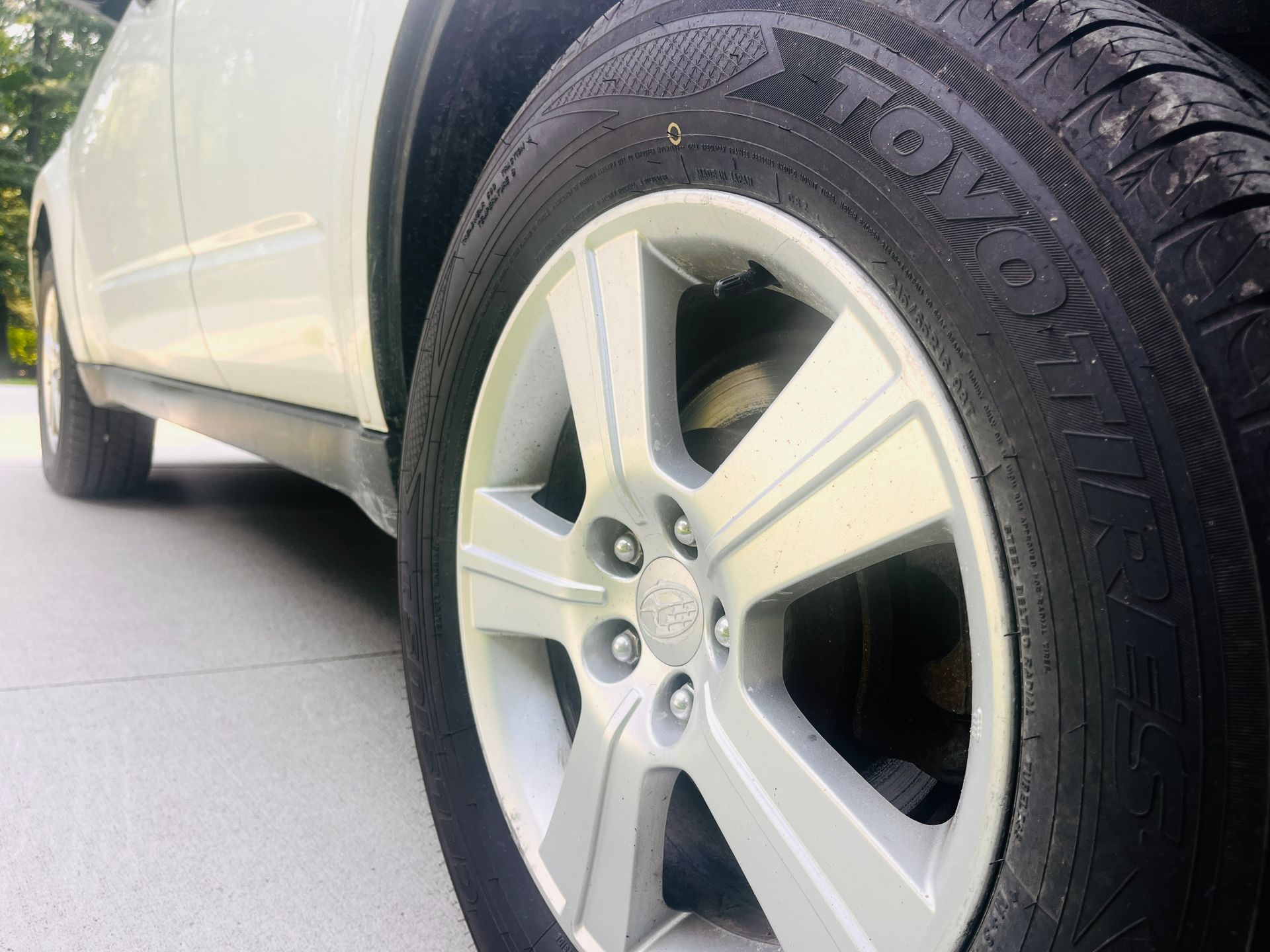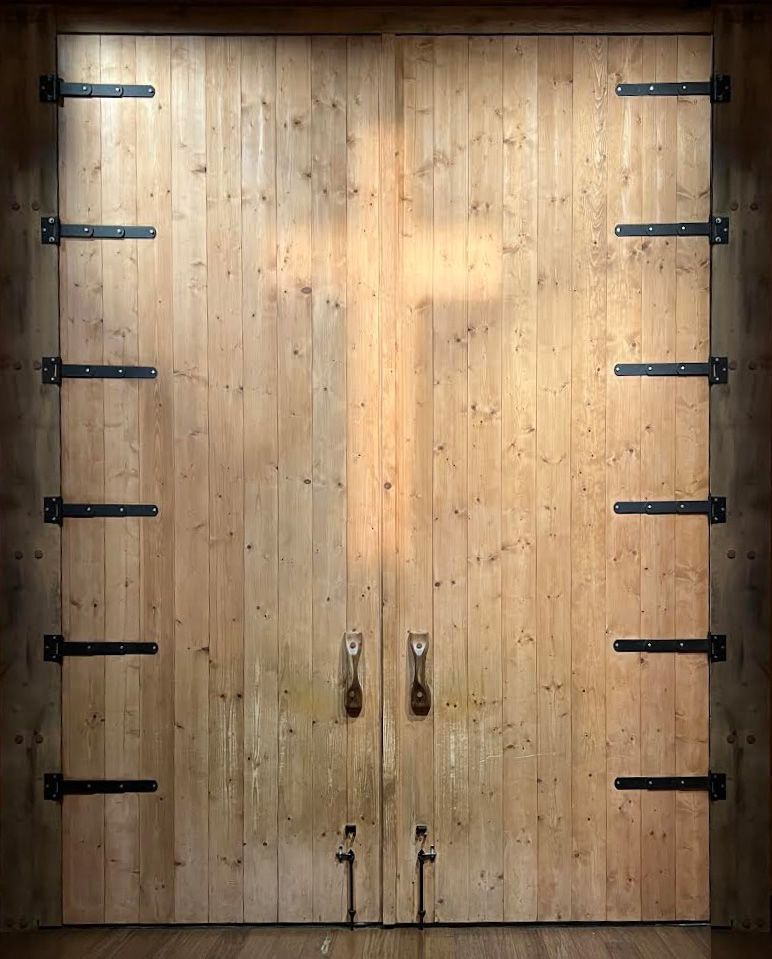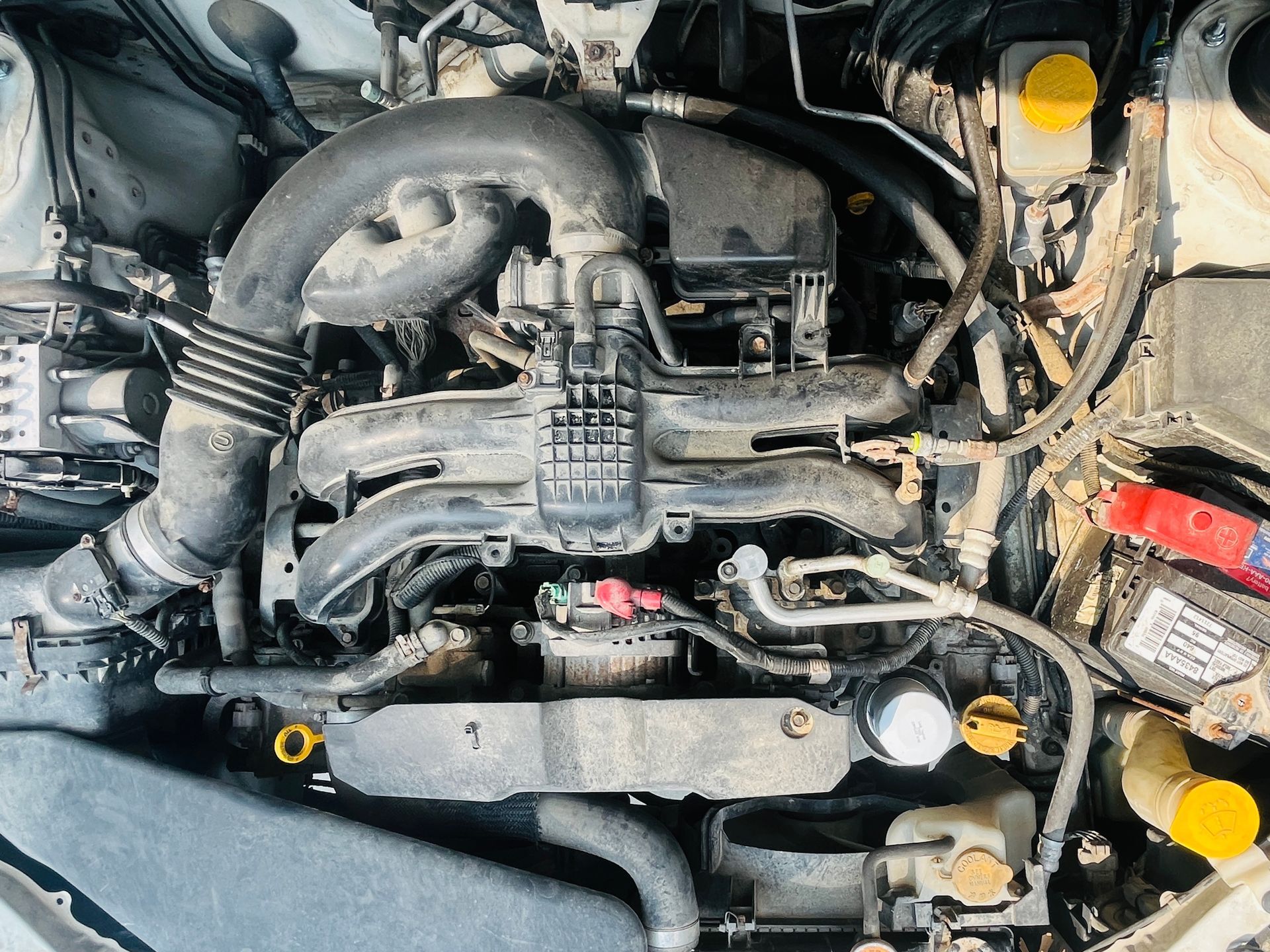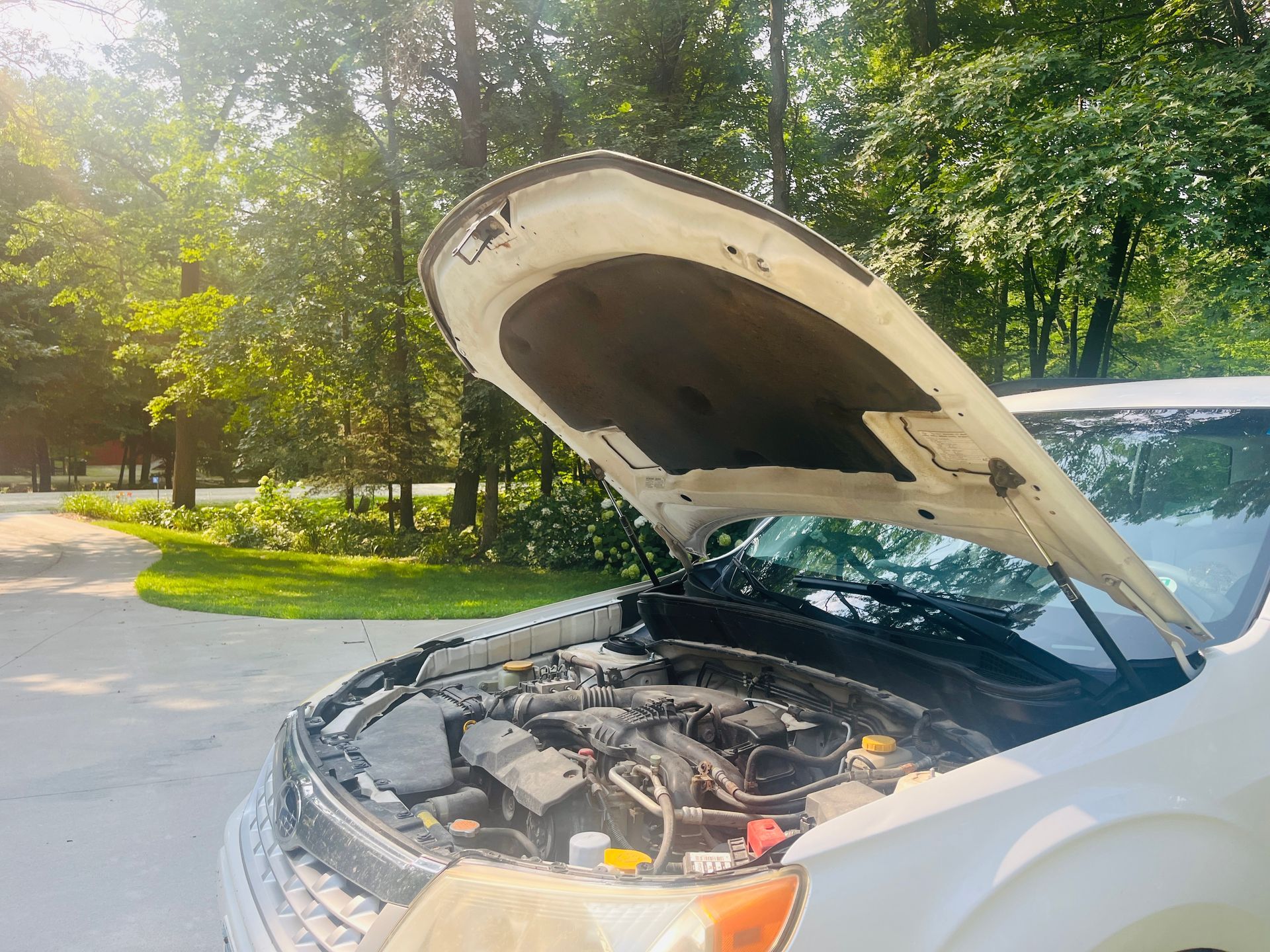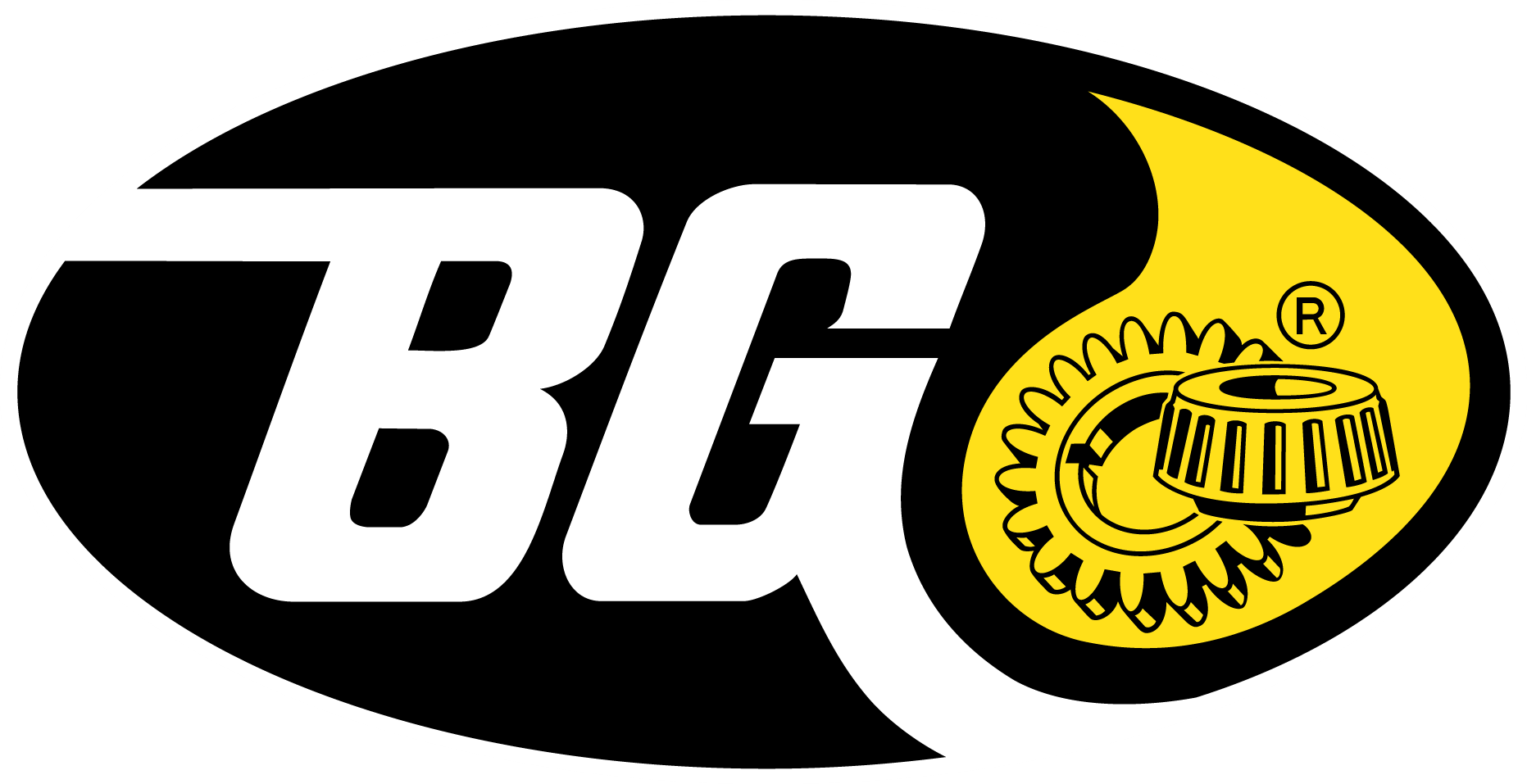We the People: Patriotism, Faith, and America's Foundations
June 28, 2022
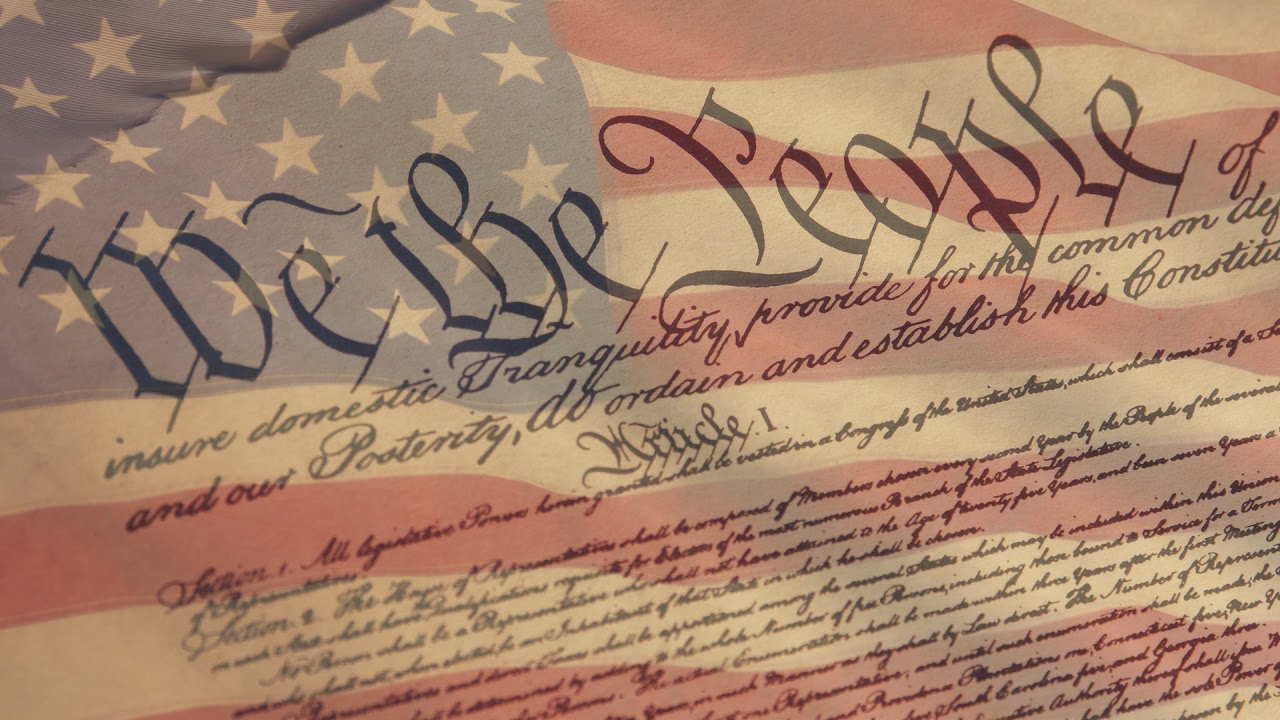
"We the People of the United States, in Order to form a more perfect Union, establish Justice, insure domestic Tranquility, provide for the common defense, promote the general Welfare, and secure the Blessings of Liberty to ourselves and our Posterity, do ordain and establish this Constitution for the United States of America."
I memorized these words in grade school. Today, they remain in the vault of retained pieces in my mind that occasionally come to the forefront and roll off my tongue. On a trip with my daughter to Washington D.C. a few years ago, I recited them to her. She was surprised but less than impressed—for how would this ever be useful?
To be honest, it never really has been. I know these words because I was required to memorize them. But I never really soaked them in, appreciated them, or even fully understood what they meant, why they were written, or how truly important they are—until now.
When my husband suggested that my next article be patriotic, I slowly pondered this. The Preamble of the Constitution and images of our American flag came to mind along with songs, other memorized pieces, movies I have watched, and books I have read. I also began reading and listening to new literature in order to better equip myself for this article.
I will be pulling from some of these works as I share with you my love and devotion to our country, the truth about America, and our responsibility going forward. I will present facts as they have been documented—not to be controversial or political—but to reveal what is true.
In honor of what we are about to celebrate on July 4th, let us first begin with the document in which the Constitution supports—the Declaration of Independence.
Back in the 1770s, the residents of the thirteen original North American colonies became increasingly grieved by their lack of representation within the British government for their rights, how the king of England was overstepping his power, and the tax demands being made of them. They were tired of being treated unfairly and yearned to be free from England’s control.
For these reasons, the thirteen colonies united together and drafted a document, stating twenty-seven ways the British government and king were wrongly oppressing them. But before they got to their list, they began with a powerful statement, truly foundational to what we expect as Americans today, concerning Freedom.
The founding fathers of our country declared with conviction five core principles regarding our freedom when they wrote the Preamble of the Declaration of Independence:
· All men are created equal.
· Our rights come from God.
· Every person has the God-given right to live, be free, and pursue happiness.
· The purpose of our government is to protect our God-given rights.
· When the government fails to protect our rights, we have the responsibility to institute new government.
On July 4, 1776, after the final edits and changes were made, fifty-six men from the thirteen colonies signed the Declaration of Independence,
declaring they were free from the powers of England and establishing their independent nation of The United States of America.
It took several years for America to fully realize this freedom as the Revolutionary War was being fought. But complete freedom eventually rang out on September 3, 1783, when the Treaty of Paris was signed by the United States and Great Britain, ending the war and recognizing each of the thirteen colonies as free, sovereign, and independent states.
It is important to note that this treaty begins by declaring the Power by which the agreement was signed: In the Name of the most Holy & undivided Trinity. It further states that by the Grace of God, the agreement came to be. Let’s just tuck this piece in our pockets for a bit and come back to it later.
The Declaration of Independence is the “purpose statement” of our nation. But simply having a purpose, no matter how powerfully delivered, is not enough for any institution or nation, including the United States. It became clear that a plan, or supporting document for the “purpose” needed to be created so that everyone would know how this new government would operate.
This is the reason the Constitution of the United States was created in 1787. It contains the laws needed for our rights to be protected so that we can continue to “live, be free and pursue happiness”. It is considered the “the highest law in the land” or “supreme law” because every other law is supposed to follow the rules found in it.
As the original document was being considered and drafted, those present were in disagreement concerning many of the decisions being made about how the government would function. So much so, in fact, that it seemed the document would not be completed unless there was a guiding force to help the men come to agreements.
That is when Benjamin Franklin addressed the President, imploring him to include God in the decision-making process by saying, “I have lived, Sir, a long time and the longer I live, the more convincing proofs I see of this truth—that God governs in the affairs of men. And if a sparrow cannot fall to the ground without his notice, is it probable that an empire can rise without his aid?”.
Following this famous speech, agreements were reached in miraculous ways.
Today, there are seven articles and twenty-seven amendments to the constitution. The articles mainly focus on how the US government works. The amendments are additions to the constitution that came after it was originally set forth in 1787. Many amendments are written about the rights we have, including the Bill of Rights—the first ten amendments which protect the basic freedoms of every American. While other amendments contain clarifications about how the government works.
The largest words written on the Constitution are perhaps three of the most important words of the whole document: “We the People”. These powerful words are what separate us from other nations in that the United States government exists for the people and by the people.
In his book “If You Can Keep It: The Forgotten Promise of American Liberty”, Eric Metaxas states that the Constitution was a sufficient beginning. But he goes on the say, “It was the foundation of the United States of America, but merely existing—and merely obeying the laws that stem from the Constitution—was hardly what the founders had in mind. The idea that our government is ‘we the people’ is not a corny idea that doesn’t mean much. It is something that is utterly real. It is in fact an idea of great genius and is the main operating principle by which this nation has stayed alive and has expanded its freedoms for over two centuries. But once ‘we the people’ begin to forget that, and cease to do what is necessary as Americans, it all begins to fall apart.”.
Metaxas’s book is perhaps one of the best pieces of literature I have ever read concerning our great nation. After my beloved friend, Stephanie suggested I read it in preparation for this article, I enthusiastically took her advice and began pouring over the words and ideas found within the pages as I also listened to it on audible every chance I got.
Why had I not heard of this book years ago? Why are these principles and basic understandings of our country not taught in schools? Why have I been so ignorant of the intricacies of how our nation came to be and my responsibility to keep the republic that it is?
When I first heard “Republic” mentioned, I immediately went into my mind’s vault and recited:
“I pledge allegiance to the flag of the United States of America and to the Republic for which it stands, one Nation under God, indivisible, with liberty and justice for all.”
Read that again! Soak in the words as you never have before. What does it mean to you? Is it something you have just recited with a hand over your heart as you gaze upon our flag? Or do you feel the deep meaning behind it and truly pledge your allegiance?
Metaxas continues in his book, “So by itself, the Constitution could do very little. What is promised would require the efforts of all those who thenceforth called themselves Americans. It was they who must keep it, the republic and the grand and noble promise of that republic. That is the wonderful, spectacular genius of it all, and the terrible, sobering danger of it all too. The document and the men who created it put these unimaginably great and fragile things in the hands of the people. So these things—still unimaginably great and fragile—are in our hands now, this minute. We are ourselves this moment the keepers of the flame of liberty and the ones charged by Franklin and the other founders and by history past, present, and future with the keeping of this grand promise to the world.”
Keeping the Republic for which our flag stands is our responsibility as Americans. If you have never been informed of this duty and simply wish to live with American freedoms without doing your part of what has been entrusted to you, then I have some pretty sad news for you, and for me. The promise—the one we are expected to keep, has already begun to be broken. If something is not done, and done soon, I stand with Metaxas in believing that the promise may become broken beyond repair.
Metaxas continues with the explanation of what self-government is, why there is a need for ordered government, and how they work together to protect our freedom.
When describing American freedom, he says that it’s not freedom to do anything one wishes, instead it must be an “ordered freedom”. “So to be clear: People would not have freedom from government, but would have freedom from tyrannous government, or from government that might easily become tyrannous. The ordered freedom given to us by the founders was meant to enable people to govern themselves.”
What’s more, Metaxas says that for self-government to work, “two things that had never before existed must be brought into existence simultaneously … Both spoke to an understanding of mankind that was corroborated by the observation and history and that was, in the founder’s estimation, a biblical understanding of things. Each of the two things answered a particular question and solved a particular problem: The first understood that man was fallen, and the second understood that he must be redeemed.”
Because we are all sinners and fall short of God’s glory, Metaxas says, “government must be created that took this into account and whose very structure limited the power of any one part, lest that power grow and take over, devolving into tyranny”.
The desire for power is, well, powerful. One or many may stop at nothing to attain it. Knowing this, Metaxas says the second piece must come into play—"that is religion”.
Not only was religion seen as necessary in self-government by our forefathers and others, it was witnessed by other countries when representatives visited to learn from what America was doing. This was true for the Frenchman, Alexis de Tocqueville when he came in 1831. Metaxas states, “Tocqueville found himself generally marveling at the American people and the democracy they had established that flourished now, over a half century since their revolution.”
Tocqueville’s own words elicit awe when he said, “Upon my arrival to the United States the religious aspect of the country was the first thing that struck my attention; and the longer I stayed there, the more I perceived the great political consequences resulting from the new state of things. In France I had almost always seen the spirit of religion and the spirit of freedom marching in opposite directions. But in America, I found they were intimately united and that they reign in common over the same country.”
With religion comes accountability to God—no matter the denomination. Where there is accountability, there is virtuous behavior and doing good (we will touch on this more later). Metaxas says that the government essentially said, “Yes, be religious. We will not only tolerate it; we will respect it and we will encourage it. But we cannot take sides…”. This is religious freedom.
Metaxas expands on these ideas throughout his book while also sharing many other principles, practices, and truths that have made America unique and great. If I were to highlight the key points, underline the important concepts, and star the crucial pages that need to be remembered, my entire book would be marked up. It is that good. It is that captivating and relevant. It is that important.
Instead, I will give you a brief overview of the rest of its contents. Metaxas speaks about America, how she came to be, the hope she shares by offering a better way, and the sheer goodness that has been done because of how great she has been.
Metaxas expresses his gratitude to Os Guinness, the one who helped him see the importance of the Golden Triangle of Freedom—how virtue, faith, and freedom are required to work together in order for each to exist. He speaks of George Whitefield, a man who has incredible historical significance concerning The Great Awakening and what it all meant then and means today. He speaks of our history and heroes and how we have failed to continue to honor all who have helped make our nation what it is today and why it’s important to do so. And he speaks of the importance of moral leaders, “the almost chosen people”, loving America, and how we must keep what was entrusted to us—the republic, that is our great nation.
My recap of Metaxas’s book does not do it justice. I implore you to buy this book—buy it for yourself, buy it for friends, neighbors, family, and anyone who is willing to read it. Read it to your children and grandchildren. Learn about our nation and what our responsibility is as “we the people”.
It is so important to me that you read this book that I have set funds aside—if you cannot afford the book or do not wish to use your money to buy a copy, I will use these funds (until they are depleted) to buy and send one to you. My only request in doing so is that you read it and pass it on to another person and request the same of them—to read it and pass it on. If you would like to accept my offer, simply email me at Jeana@BabcockAutoCare.com
Let us come back to the big fancy words I memorized as a child—the Preamble to the Constitution. Without understanding their meaning, I could not fully know what was being said or what was required of me. Perhaps it’s the same for you. So let us look at it in a more simplified way:
All of us—you and me and everyone who came before us and will come after us, must keep our nation together as one, provide laws and also punishments in a fair manner, keep peace within our nation, defend the rights and lives of our citizens, promote a free market that allows all people to earn livings uninhibited by the government, all so that we and future generations will live freely and enjoy the blessings of our freedom by enacting this plan for the United States of America.
So, what, pray tell, is required of you and of me to continue to be free and enjoy our blessings of freedom as well as pass this freedom onto our children and our children’s children? Another of the pieces from my mind’s vault may have the answer—the first and last stanzas are the ones that I can recite from memory. I invite you to sing along:
“My country, ‘tis of thee,
Sweet land of Liberty,
Of thee I sing.
Land where my fathers died,
Land of the pilgrim’s pride,
From every mountainside,
Let freedom ring!”
“Our father’s God, to thee,
Author of liberty,
To thee we sing;
Long may our land be bright
With freedom’s holy light,
Protect us by thy might,
Great God, our King!”
Did you catch that? The most important piece? God is the author of liberty—He is the designer of freedom. He not only knows how important freedom is, He knows that because of our sinful nature, there is nothing we can do to be free on our own. So, He created a way for all of us to be free from our transgressions—by offering His One and Only Son as a sacrifice. Our first order of business is to repent of our sins and believe that Jesus is the Son of God.
Oftentimes, we think it stops right there. We have only to repent, accept, and believe and then we can keep right on sinning while repenting of our sins later to be forgiven over and over. And we know, from what God’s Word says, that we don’t have to do good works in order to be saved. So, it seems pretty simple on the surface—believe, be saved, and keep living as you wish, no matter the sin because God is full of grace.
It is true—He is full of grace. However, in being a child of God’s, we become responsible and accountable to Him. And because His spirit that lives in us is meant to change us and make us more like Him—the natural outcome is turning from sin and doing good—becoming virtuous.
We don’t become virtuous by continuing in our sinful ways—even though we still occasionally sin and receive God’s grace upon repentance. If we are truly saved, we have a yearning to know Jesus deeply, please Him in all we do and serve others so they can see Him in us—making a way to share the Good News with them.
God’s Living Word is given to us in the Bible. He has entrusted us as His holy and chosen people to spread His Word and love others—this is our responsibility as Christ-followers.
As the people of God’s chosen nation, it is similar to the responsibility we have to keep the Republic by which our flag stands. America was founded on the biblical principles of God. He has had His hand on our country and blessed us in big ways. But we have not fully walked in that blessing by fulfilling our responsibility as Americans and doing all that we can to keep the Republic. Somewhere along the way, the baton started to drop.
It almost seems as if everywhere we turn, there are people trying to remove God’s hand—and thereby His blessing—and we are seeing the results of such a travesty. Foundational documents have been misinterpreted. The founders of our nation and what they believed have been skewed. Some are trying to erase the history of our country. The schools that were originally created so that every person could learn the Bible, have now been tainted with the beliefs that God or religion no longer belongs. As Americans have turned their backs on God, it seems right to see that God has begun to turn His back on America.
Perhaps it is time to bring the “Great God, our King” back into His rightful seat as the creator of each of us and of our nation. But how?
We can start by standing up for and living in truth.
I mentioned earlier that I wanted to reveal what is true. In order to speak about truth, we must first define what truth is. Unfortunately, the definition that tends to be accepted is broad and loosely refers to “reality” or “what is excepted as true”. But “reality” has also become subject to debate—what can actually be proven as true or real vs. a perceived truth or reality.
Today we hear things like, “what is your truth?” or “your truth is not my truth”. What does that even mean? Why have truths and realities become so distorted? We are a people who are made to live in truth—yet truth is subject to one’s own ideas? How can this be?
It begs the question: Who does truth rightfully belong to? And how do we get back to what is true? I believe that the Author of freedom is also the Author of truth.
The truth is woven throughout the Bible—concerning the creation and history of the world, the way we should live our lives, the morals we ought to have, and the way we are called to serve others. It is chock-full of answers to our questions, guidance for our problems, and hope for our future. Everything we hear should be filtered through God’s truth in order to know if it is true or if it is not.
God’s truth is not subject to our individual “realities”. It is clear-cut. It is black and white. It either happened or did not happen. Period. It is either right or it is wrong. Period.
Despite debates about the faith of our founding fathers, what we know is true comes directly from their own mouths with speeches we have records of and documents in which we now behold. The Declaration of Independence included God. The Treaty of Paris included God. When agreements could not be made about the details of the Constitution, God was called on and God answered with a miracle. These facts are all documented truths and are not up for debate.
The foundation in which our country was founded had God interwoven throughout every moment. Our songs, based on this truth, include God. Our money includes God. Our flag includes God. Our freedom includes God.
Besides standing up for and living in truth, we can also bring back the “Great God, our King” by pursuing love. Where there is love, there is God—because God is love.
Romans 5:8 says “But God demonstrates His own love for us in this: While we were still sinners, Christ died for us.” What better picture of love is there than someone laying their life down for you?
First, we must receive God’s love. Once we receive God’s love, we can love others as He loves us—because when we are filled to the brim with His love, it naturally pours over into the lives of others. We must not only follow the Golden Rule found in Matthew 7:12, “Do[ing] to others as you would have them do to you”, but doing to others as God would do to them. This is how we love our neighbors as ourselves.
Instead of being America, a virtuous people, who love one another, we have become a selfish people veering from what is good so that we can attain “happiness” by doing what “feels good” by the world’s standards. It doesn’t seem to be working—for love is not about serving self, it is about serving others.
Perhaps in following a portion of the Declaration of Independence by “pursuing happiness” we have misinterpreted what happiness is. The thing is—happiness, by the world’s definition, never satisfies. We can chase it our whole life and never fully attain it. That is because there is only One who can fill what we desire—the One who is the Author of freedom, the Author of truth, and the Author of love.
Instead of allowing the baton to fully drop, we must reach out and grab it before it hits the ground. We must fulfill our patriotic duty by “pledging allegiance to the flag of the United States of America and to the Republic for which it stands.” We must again become “one nation under God”. For we are divided and He is the only One who can make us “indivisible”. And when we place the Great King back into His rightful position, it is then that we will obtain “liberty and justice for all”.
But how do we grab that baton in mid-air in practical ways—ways we can all take part in?
First, we walk in truth. We must share truth—God’s Word, His goodness, and the truth and the history of our country. And if we are really honest, there are big chunks of history that are blackened by sin. This does not mean that we have to hyper-focus on the sin. We can do as God does—forgive what has passed, learn from it, grow from it, and stop it from happening in the future. And if we fail in preventing it from happening, we can receive grace in which to move forward.
Second, after we have forgiven America for her transgressions, we can pursue love. We can love like God and serve out of that love. We can hate the sins but love the sinner—both in people and our nation. And we don’t have to let the sins of the past—peoples or our nation, define us. Because guess what? There is good too! There is goodness in you—and if you can’t find it, God will show you. And there is good in our nation—don’t believe me? I can prove it—read Metaxas’s book.
Third, we must live free. We must stand for democracy. We must understand how our nation came to be and the republic for which it is. We must understand our part in it—not just to live in freedom but to stand for freedom and for what is right and good. We must educate ourselves—by reading about our country and not just watching the news, which is tainted. We must become involved in our communities and get to know those who represent us in the government. We must vote based on God’s principles.
And finally, we must bring God back and allow Him to reign—in our hearts and in our country! When we see our American flag—no matter where it is—we can allow it to be our reminder to pray. Pray for God’s mercy and blessing. Pray that His Holy Light and protection would be on our country. Pray for our government and for elections and for God’s mighty hand to once again rule our great nation! And while we are at it, let us praise Him for all He has done and stand together in confidence in what He can do again. May we all honor God in all you do.
I invite you join me in one more song—from the vault of my mind and prayer in my heart. Sing it with passion and with expectation of what God can do:
God bless America,
Land that I love,
Stand beside her and guide her
Thru the night with a light from above;
From the mountains, to the prairies,
To the oceans white with foam,
God bless America
My home, sweet home.
God bless America
My home, sweet home.
My greatest hope is that when you celebrate Independence Day and all the festivities you’ve planned this weekend, you would now have a deeper appreciation for what you are celebrating. But more than that, may you truly understand your responsibility to keep the Republic for which our American flag stands, may you burst with joy as the fireworks light up the skies for the freedom and blessings bestowed upon America thus far, and may you know in your heart how deeply you are loved so that you can love America and its people with God’s love.






